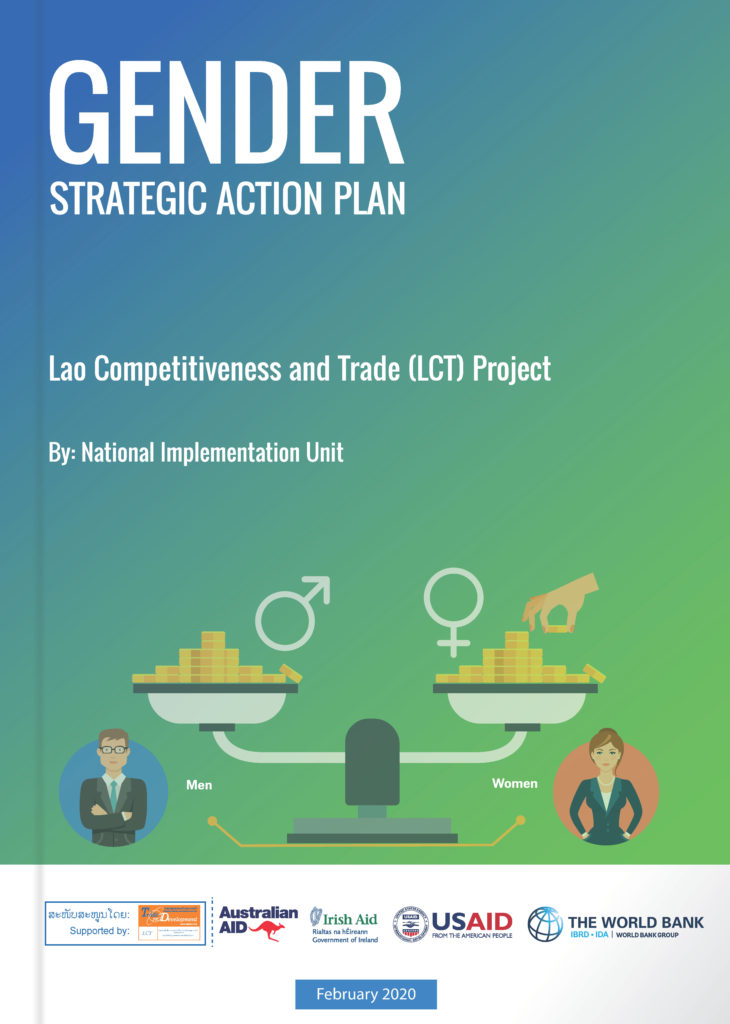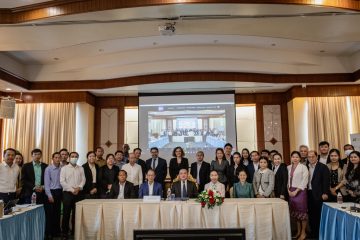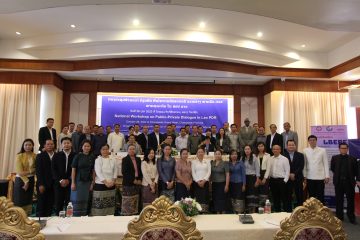Adoption of the First Project Level Gender Strategic Action Plan
Vientiane, 15 June 2020. Following validation workshop and discussions during the project implementation support mission, Ministry of Industry and Commerce officially endorsed Gender Strategic Action Plan for the Lao Competitiveness and Trade Project (LCT) in May 2020. The project aims to simplify business regulations, facilitate trade and improve firm-level competitiveness. The LCT Project is funded by a multi-donor trust fund contributed by Australia, Ireland, USA, and the World Bank (see project description at http://www.t4dlaos.org/lct-project).
The LCT Project Gender Action Plan is designed to address the need to gain a better understanding of gender specific challenges; identify the institutional needs and priorities to tackle gender issues; provide support through capacity-building of key staff and partner institutions; and directly support business owners and traders (see the Gender Strategic Action Plan at http://www.t4dlaos.org/publications-from-lct-project/).
- The Action Plan proposes four main strategic approaches, including:
- First, gain better understanding by generating and consolidating evidence on the current situation of women entrepreneurs, with an attempt to provide gender-sensitive solutions, and reflect and make sense of practical experience. The objective is to learn from women entrepreneurs and adjust the management and implementation of the project accordingly.
- Second, improve women’s ability to access regulatory frameworks by providing gender-sensitive procedures, and spaces and platforms that enable public–private dialogue on trade and gender and enhance the voice of women-led enterprises.
- Third, strengthen women’s competency at both institutional and firm level, with the objective of promoting gender-competent counterparts.
- Finally, provide inclusive, productivity-led growth and increased market opportunities for women-led firms/women entrepreneurs.
The key proposed actions intend to address identified challenges and strengthen gender mainstreaming in all levels of project interventions, including business environment reforms as well as access to regulatory information and business development services. This strategic actions commit to promoting gender equality and women’s empowerment because they are essential to achieving equitable growth, reducing poverty and improving prosperity, in line with the National Strategy for Gender Equality (2016–2025), World Bank guidelines (2016–2023) and the Australian Government Department of Foreign Affairs and Trade Five Year Plan of Action for Gender Equality (2016–2020).
In order to ensure strong coordination and effective implementation of the adopted Strategic Action Plan, 14 gender focal points, representing 14 implementing partner departments and LNCCI have been appointed.



